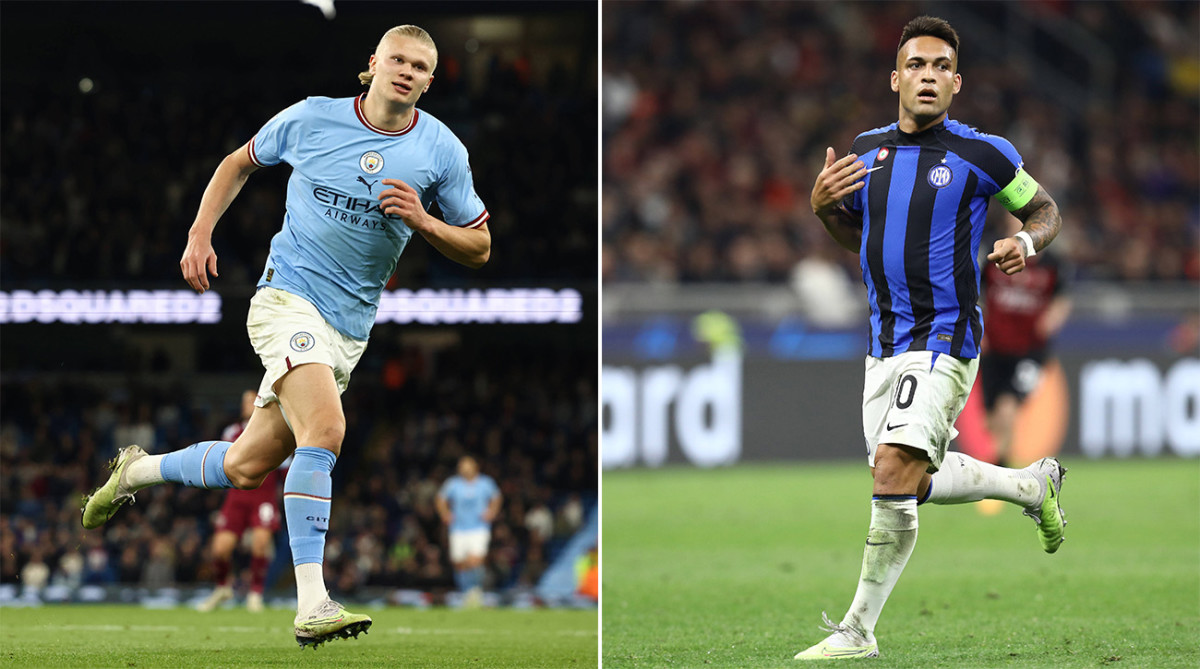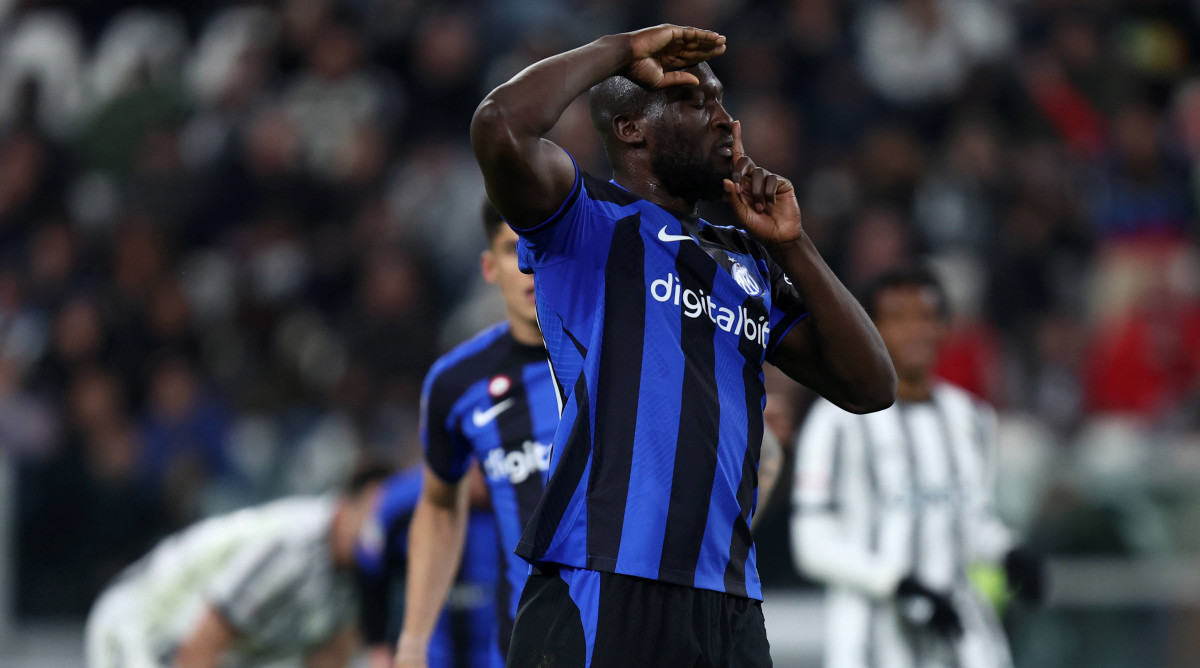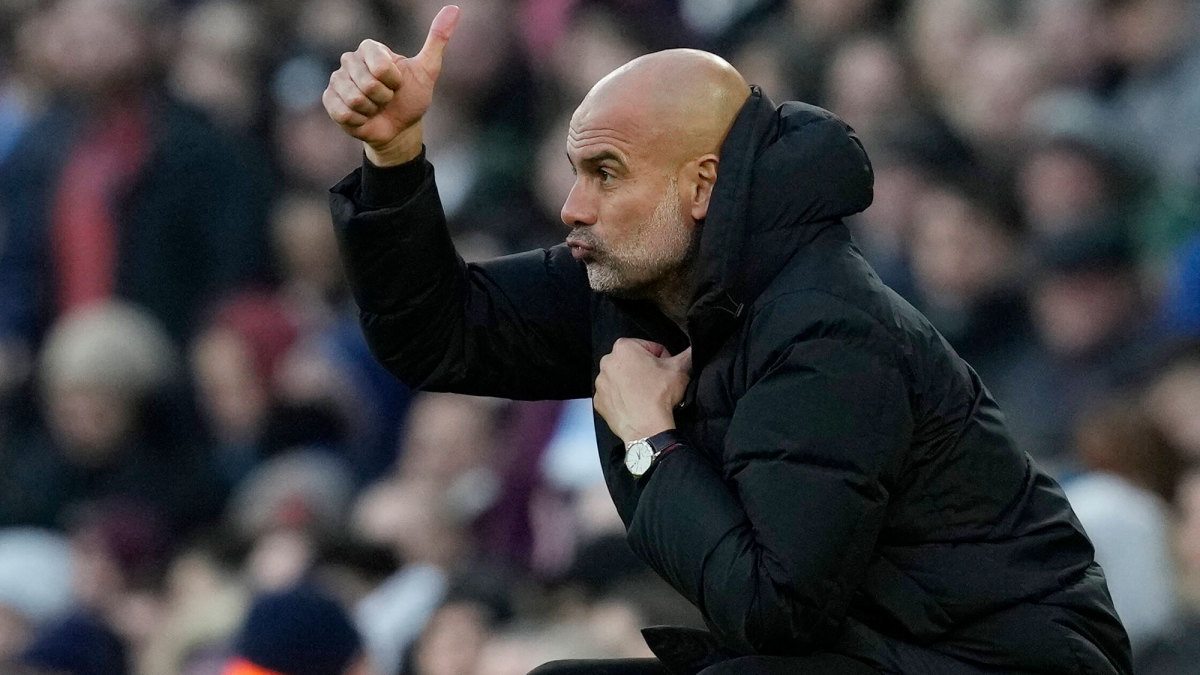Five Things That Will Decide Man City—Inter Milan Champions League Final

It’s something between a battle of titans and a true David vs. Goliath. Saturday’s Champions League final will pit a very solid, compact Inter Milan against the flamethrowing force of nature that is Manchester City. The English champions are heavy favorites, but it was no fluke that Inter reached the final for the first time since it was crowned European champion in 2010.
Here are five questions that will decide who will take home the trophy from the clash in Istanbul.

1. Is Kyle Walker fully fit?
Manager Pep Guardiola’s good graces can change like the wind. Just ask Walker. He was removed from the starting XI in March because he didn’t fit Guardiola’s view of the fully inverted fullback who essentially slots into the midfield. But since his return to the lineup—and insertion into the back three—perhaps no defender has been more influential in City’s success. In two legs against Real Madrid’s all-world winger Vinicius Jr., Walker was dribbled past just once. His speed and defensive intelligence made Vinicius look ordinary in City’s 4–0 dismantling of Madrid in the second leg.
But Walker reportedly suffered a back injury during City’s FA Cup final victory over Manchester United last weekend. His status for Saturday is in doubt after he missed training Tuesday. He insisted the injury is not serious. But a less-than-full-strength Walker could be a target for Inter’s attack, particularly in the form of left-sided forward Lautaro Martínez. The Argentine finished the season in scalding form (nine goals and three assists in his last 10 games) and was spectacular on the counter in Inter’s 3–3 draw with Barcelona in the group stage.
2. How will Manchester City counter the counter?
Only a select few teams can successfully keep Pep Guardiola’s City off the ball. City had as many games this season keeping 75%-plus possession as games with less than 50%. But Inter will be comfortable playing without the ball. Of the team’s 14 losses in all competitions, only four came when Inter had greater than 50% possession. In its critical 1–0 group-stage win vs. Barcelona, it had just 29% possession and defended valiantly to keep the Catalan side at bay. Its knockout stage victories provided the blueprint: The first goals scored in both Inter’s 2–0 win and 3–3 draw vs. Benfica in the quarterfinals were not so much counterattacks, but quick, direct attacks. So was the goal that put Inter 2–0 ahead of AC Milan early in the semifinals, essentially sealing that tie in the first half of the first leg.
In moving John Stones into the midfield and Walker onto the right side of a back three, Guardiola has ensured City dominates the middle of the pitch and stops those rapid attacks before they gain steam. But Manchester City’s lone weakness over the last several years of dominance in England has been the susceptibility to teams that counterattack with precision and vigor (see: five losses vs. Tottenham since 2019–20). If Martínez can break past City’s midfield and get at the back line, Inter can create chaos on the counter.
3. Can Inter stop Erling Haaland’s crowning moment?
European soccer’s golden boy could be headed toward winning the golden ball. The 22-year-old took the Premier League by storm, shattering the single-season goalscoring record and notching 52 goals in 52 appearances in all competitions. It’s been a blinding start to what appears to be a rapid ascension to a place among the game’s greats. Even more, he’s now approaching pole position among the favorites to become the youngest Ballon d’Or winner since Lionel Messi in 2009.
It’s obvious slowing down City’s goal machine will be paramount to Inter’s chances in this final. The Nerazzuri have actually fared well against top strikers in the Champions League: They held Robert Lewandowski scoreless in their first group-stage match against Barcelona before he scored twice in their wild 3–3 draw; they kept Liga Portugal’s top two scorers, Mehdi Taremi and Gonçalo Ramos, off the scoresheet in Round of 16 and quarterfinal wins over Porto and Benfica; and Olivier Giroud was never comfortable in their dominant victory over AC Milan in the semis. A back three that will likely consist of Francisco Acerbi (6’4”) in the middle will need to limit Haaland’s clear goalscoring chances if Inter has any shot of toppling City.

4. Which Romelu Lukaku will we get?
It would be a massive understatement to say Lukaku’s return to Milan has been up and down. He scored just over a minute into his debut, then didn’t score in the league for another six months. Injuries kept him off the pitch for much of that time, as did horrendous goalscoring form when he was fit. Then in the run-in to finish the season, Lukaku turned it on to somehow finish with 10 goals and six assists in league play.
Where he hasn’t failed to make his mark this season is in the Champions League. In seven appearances off the bench, he’s scored three times and assisted one, averaging a goal every 50 minutes. He notched the only goal in Inter’s 1–0 aggregate win over Porto and he assisted Martínez to seal the semifinal win over Milan in the second leg. Lukaku’s holdup play and eye for goal could be very useful, especially if Inter is chasing late. Can he produce more Champions League magic?
5. Will Pep overthink it?
It’s so oft-discussed that it’s becoming trite, but you simply can’t go without mentioning this possibility. Manchester City’s long string of failures in the Champions League is perhaps the only stain on Guardiola’s résumé. The most stark of those European fiascos came in the 2021 Champions League final against Chelsea, where he opted not to start a single holding midfielder; City was beaten 1–0 on a single goal from a quick attack.

The good news for Manchester City fans: There has been little tinkering of the lineup throughout the run of victories over the last few months. Guardiola certainly knows his best XI by now. But with more than enough time to prepare, to ponder, to consider other options, we’ll know only when the lineups are released whether the enigmatic Spaniard let that little voice of uncertainty play a role in Saturday’s final.
